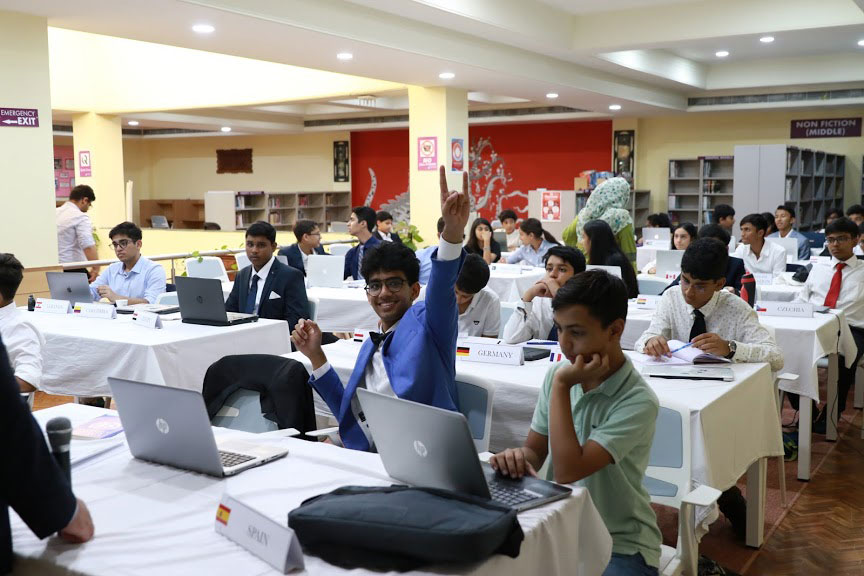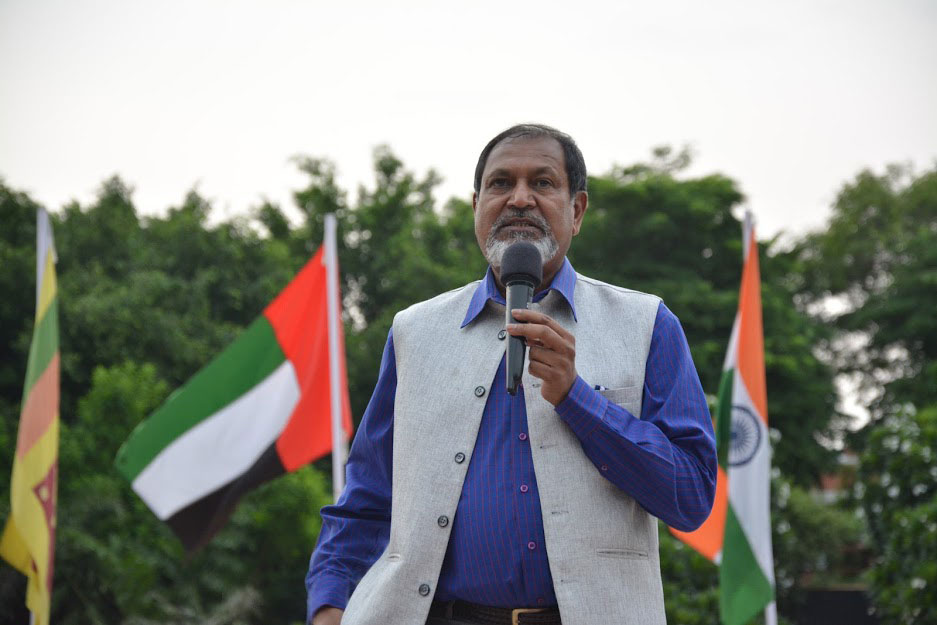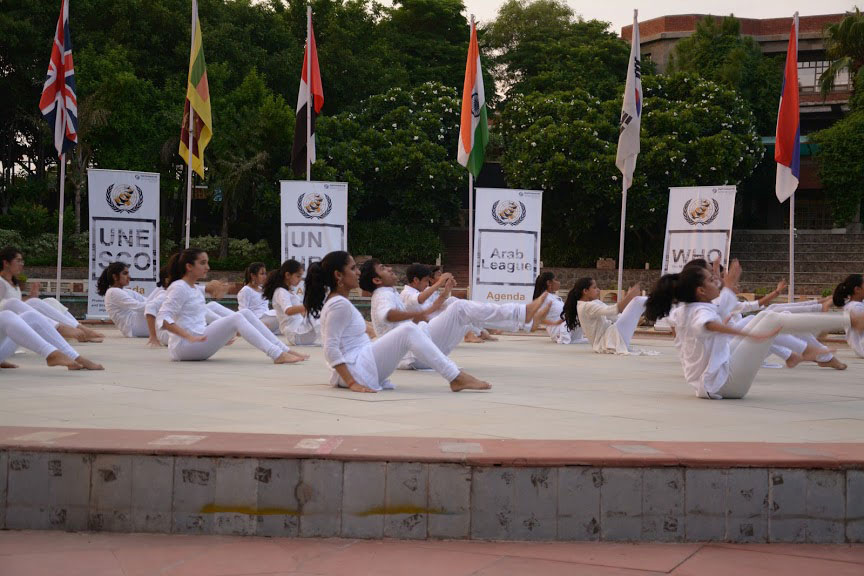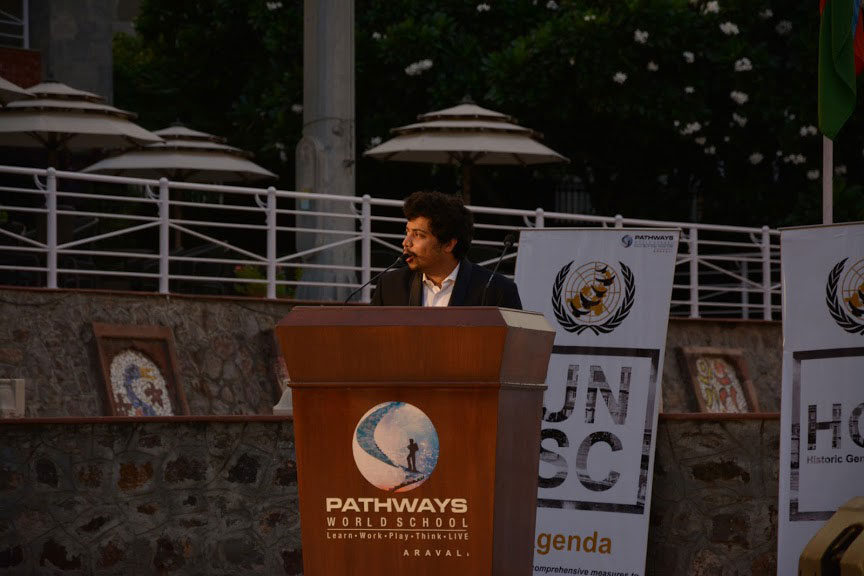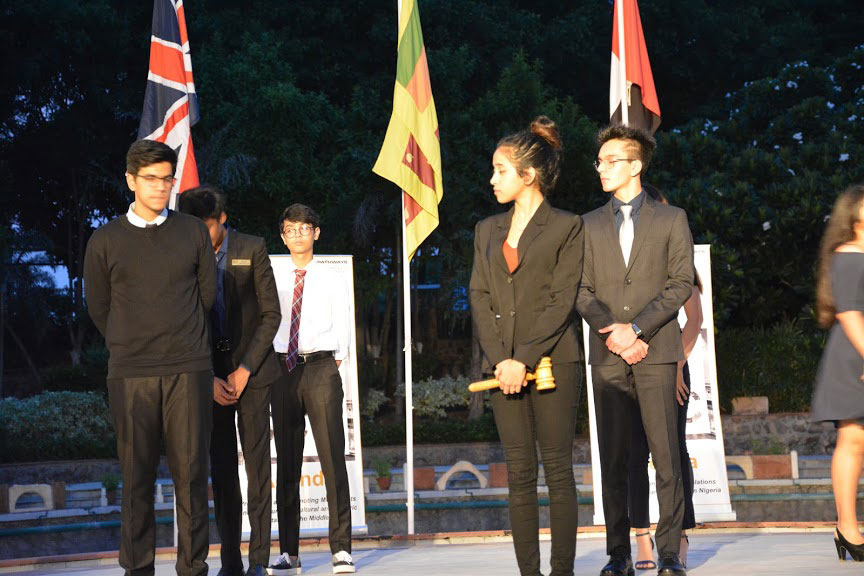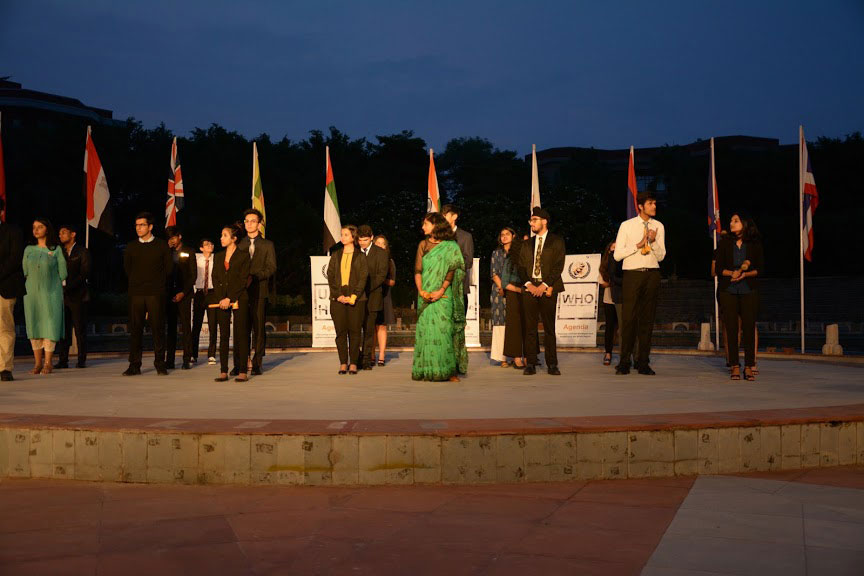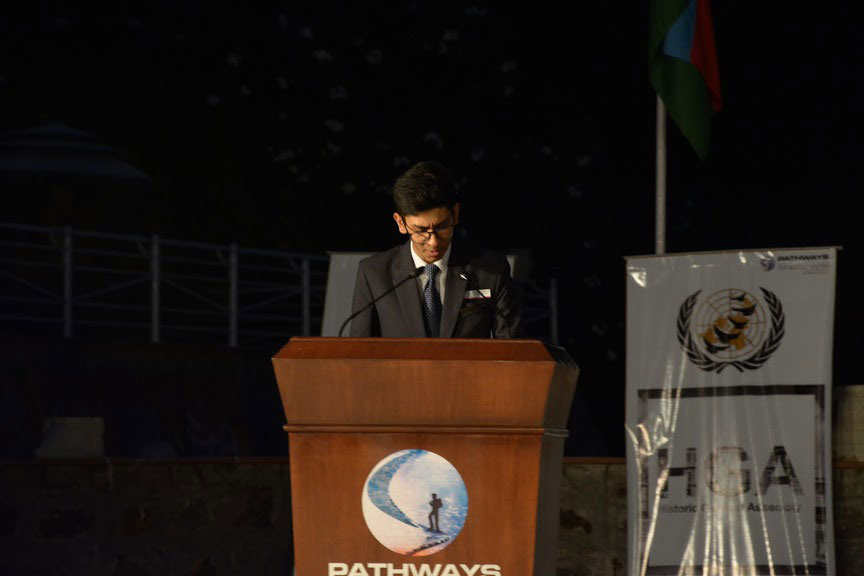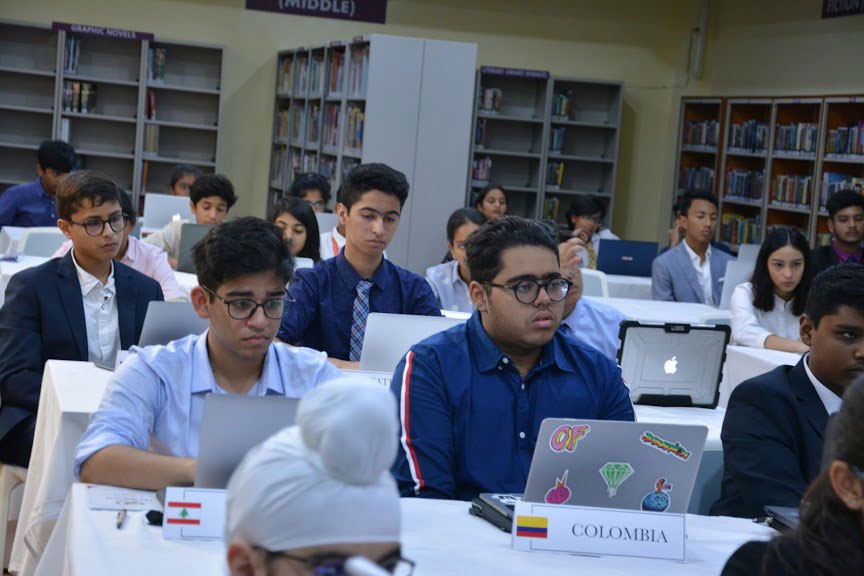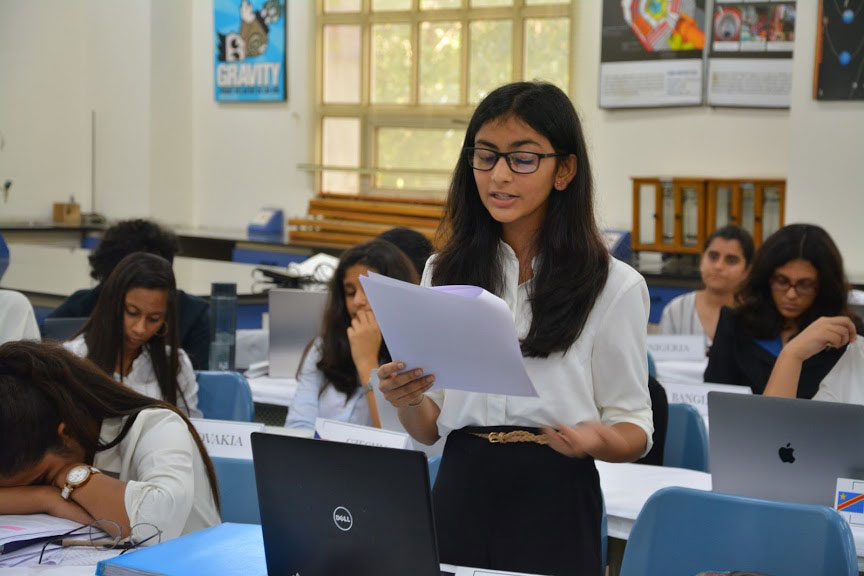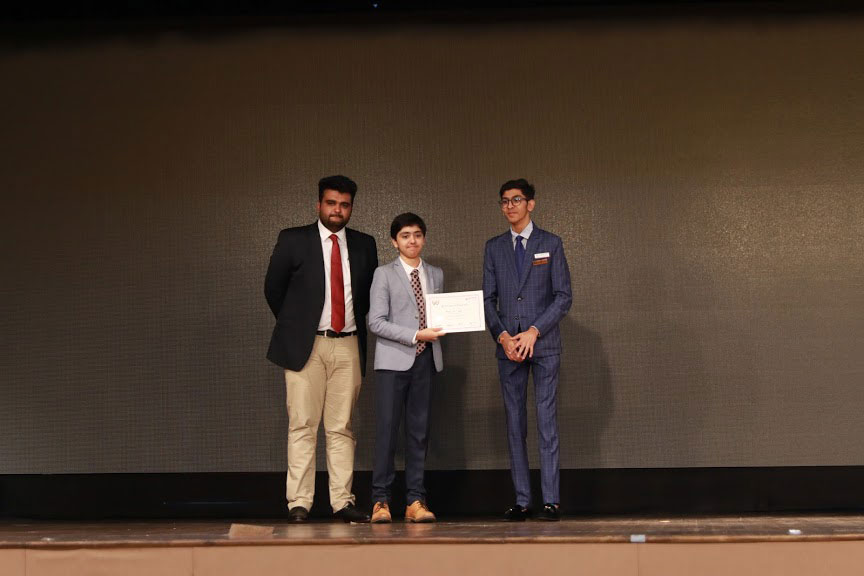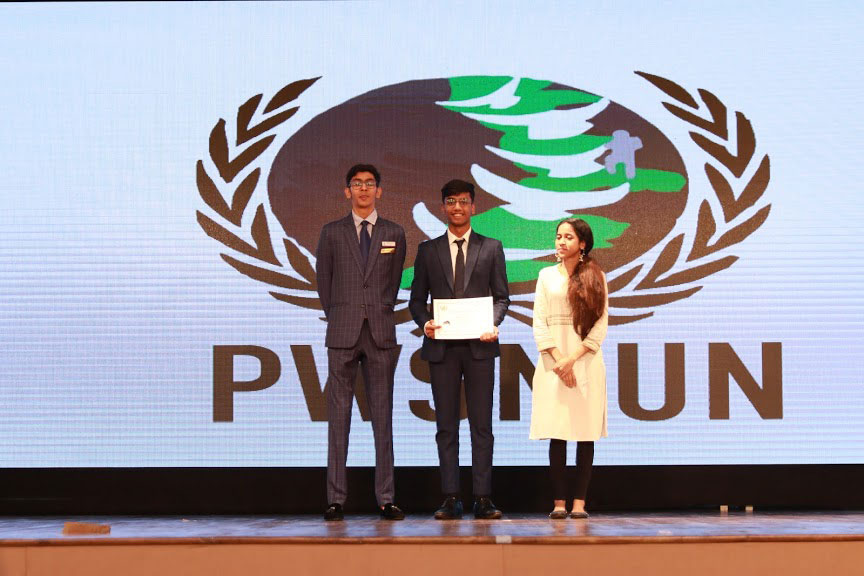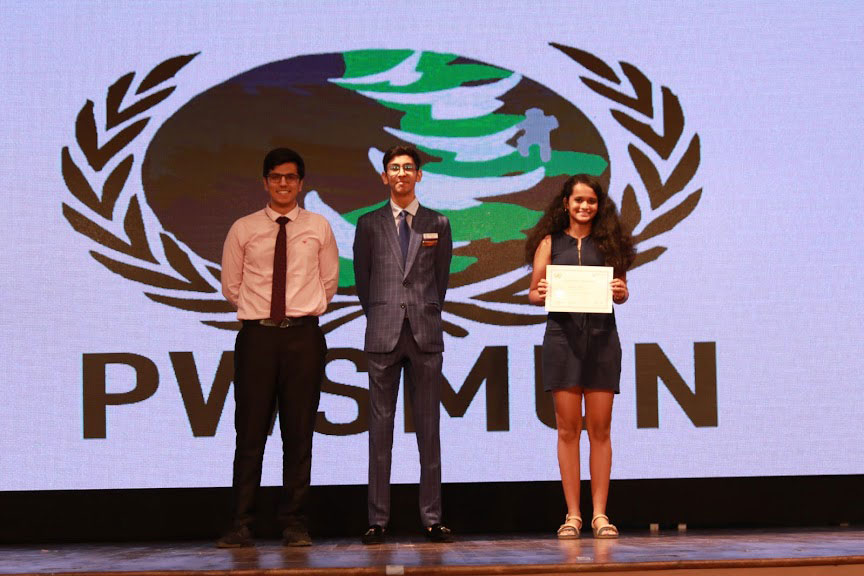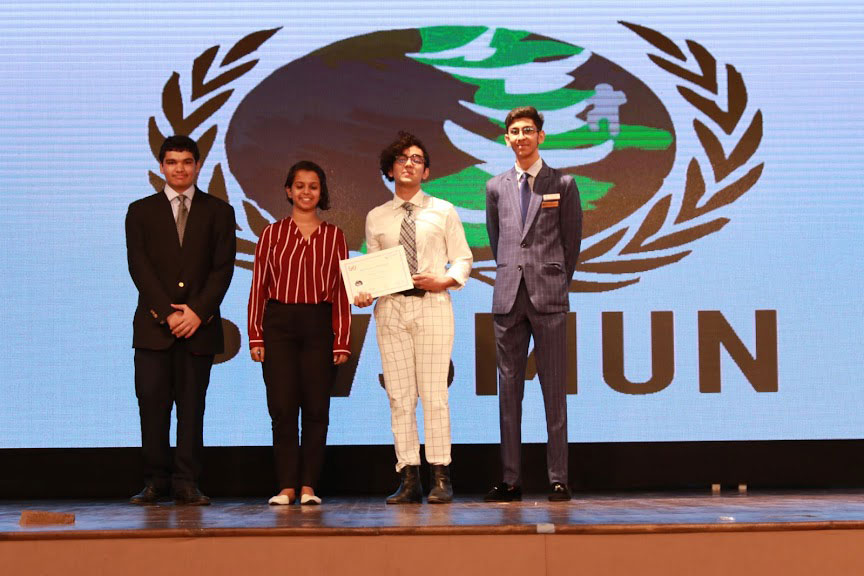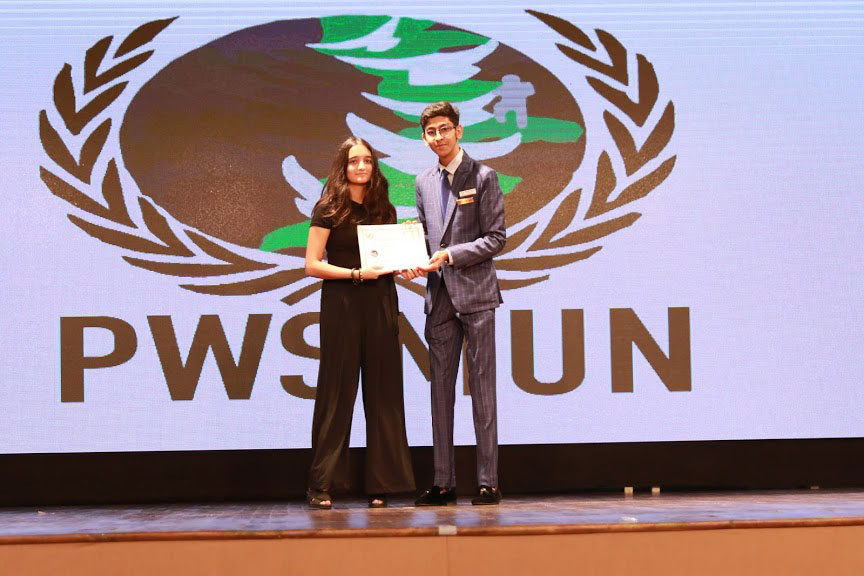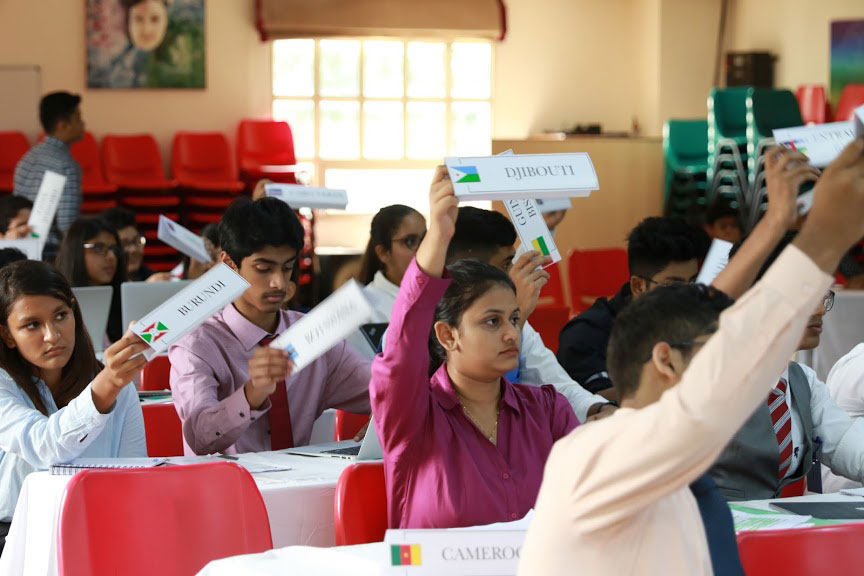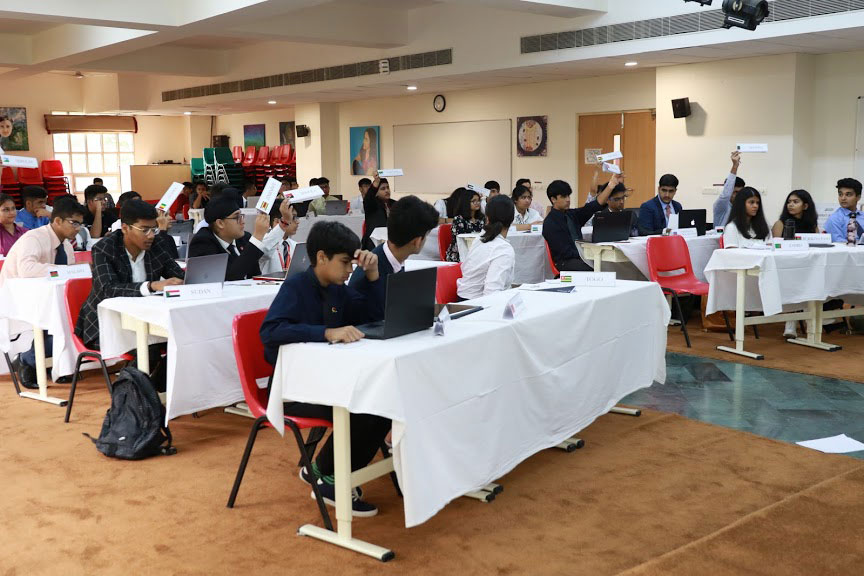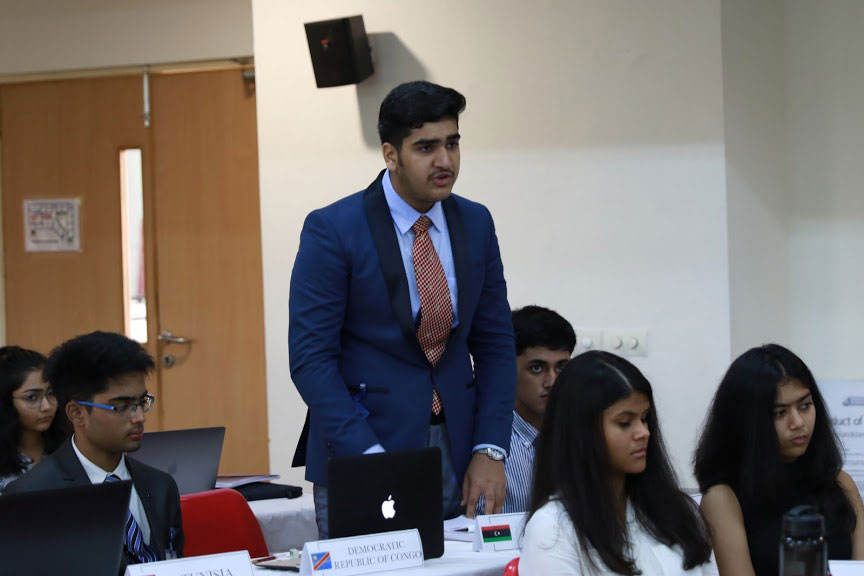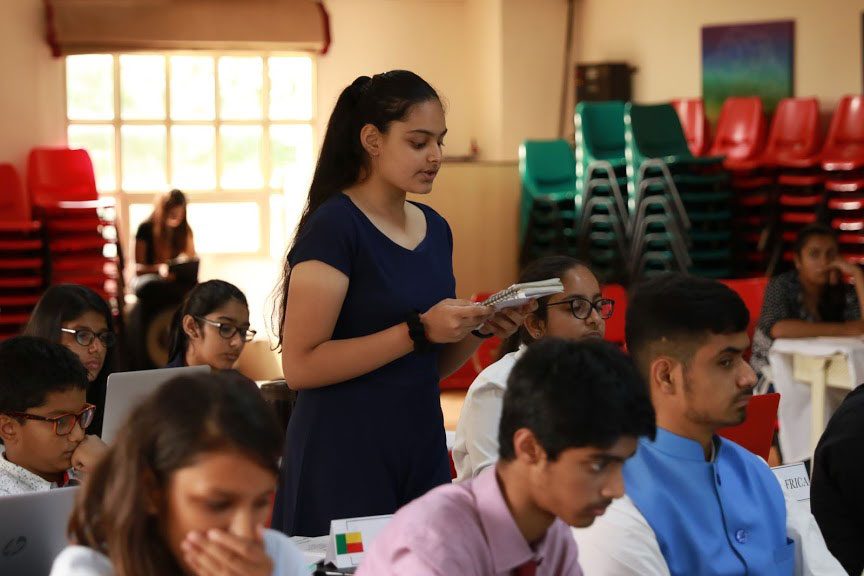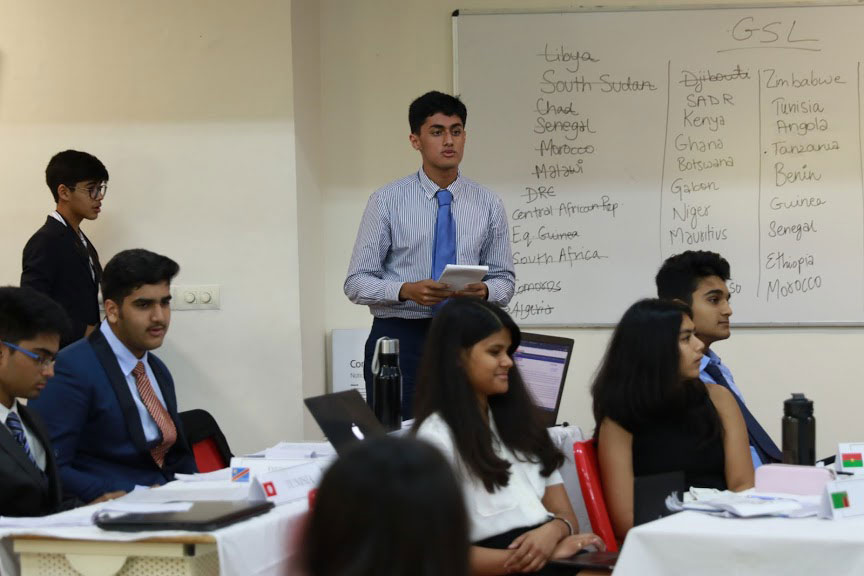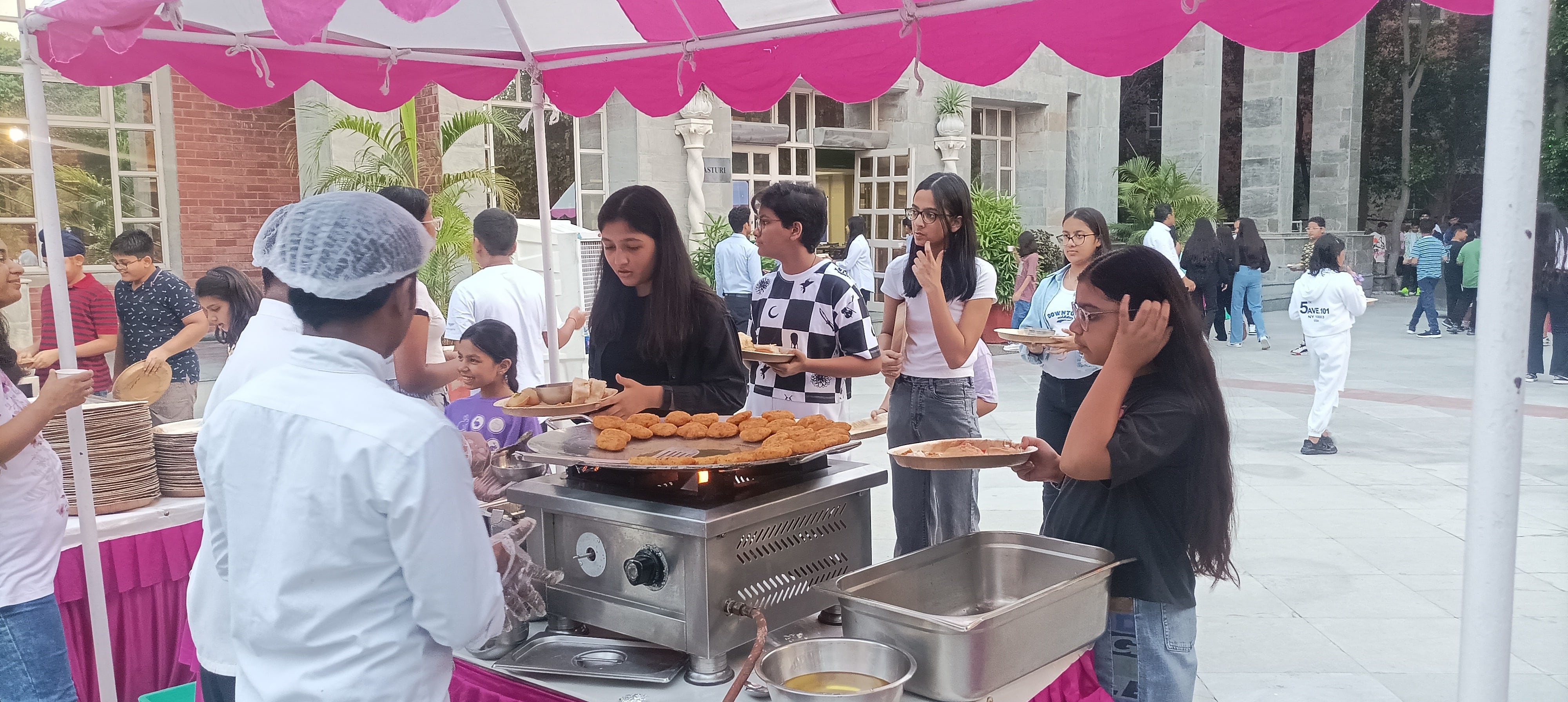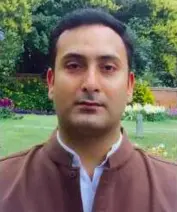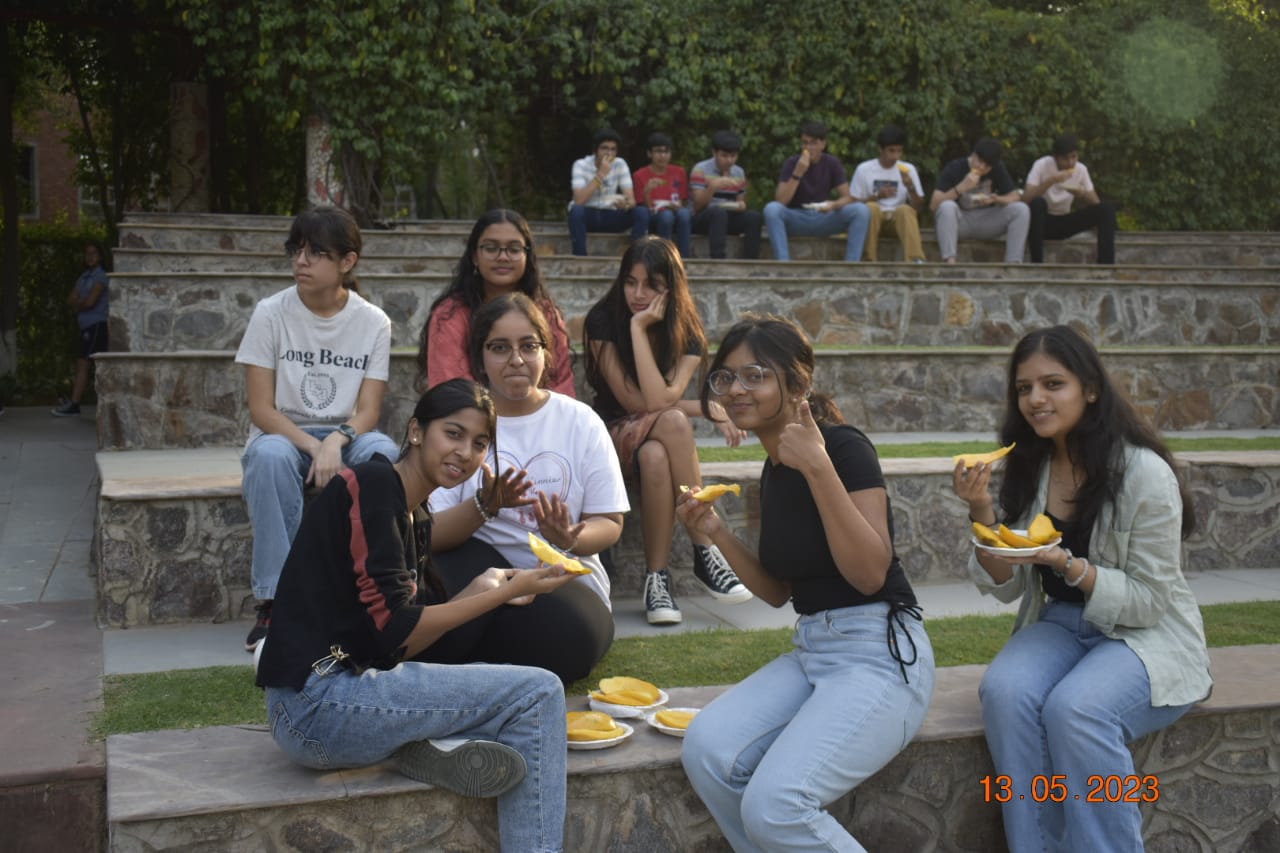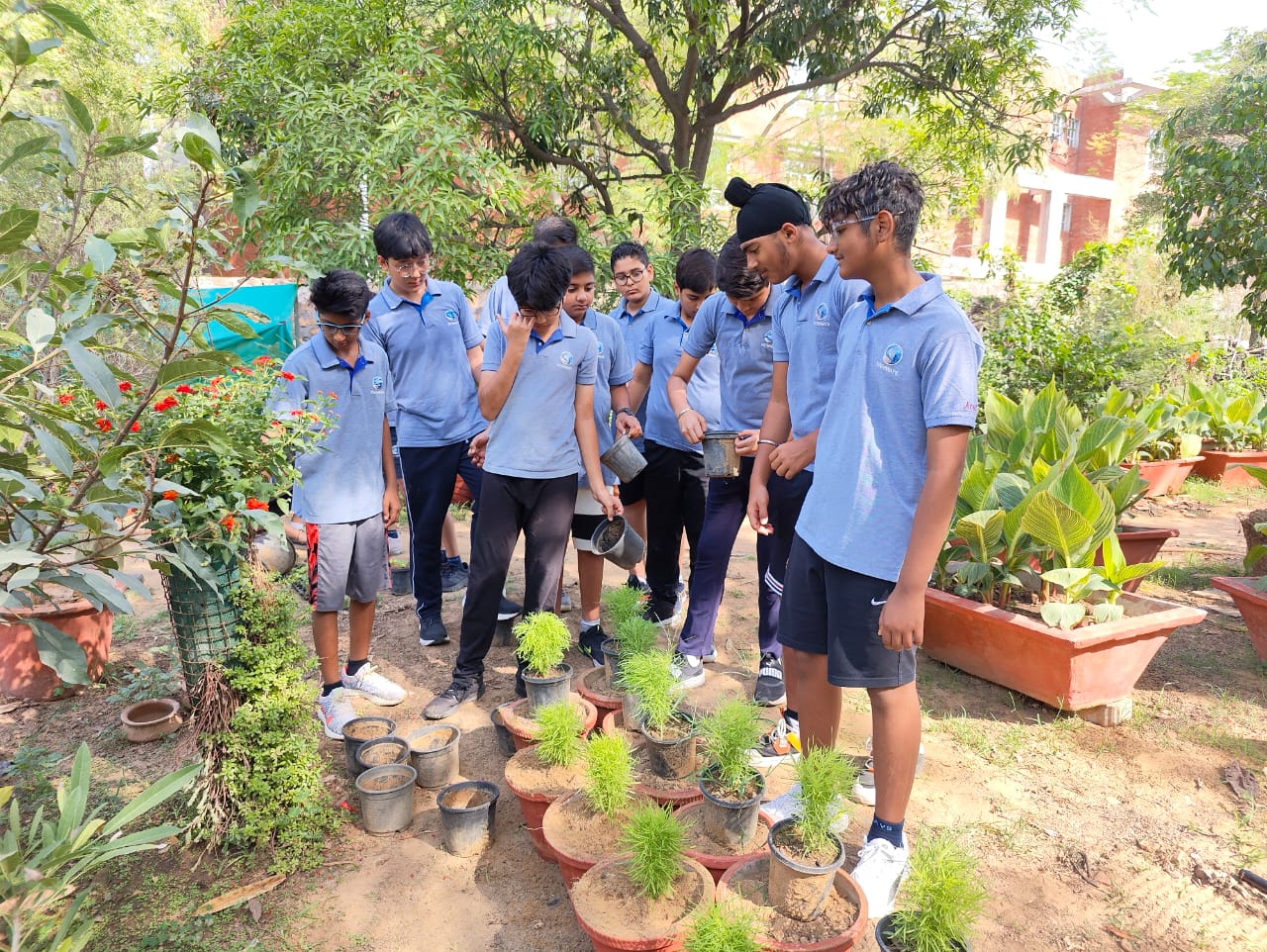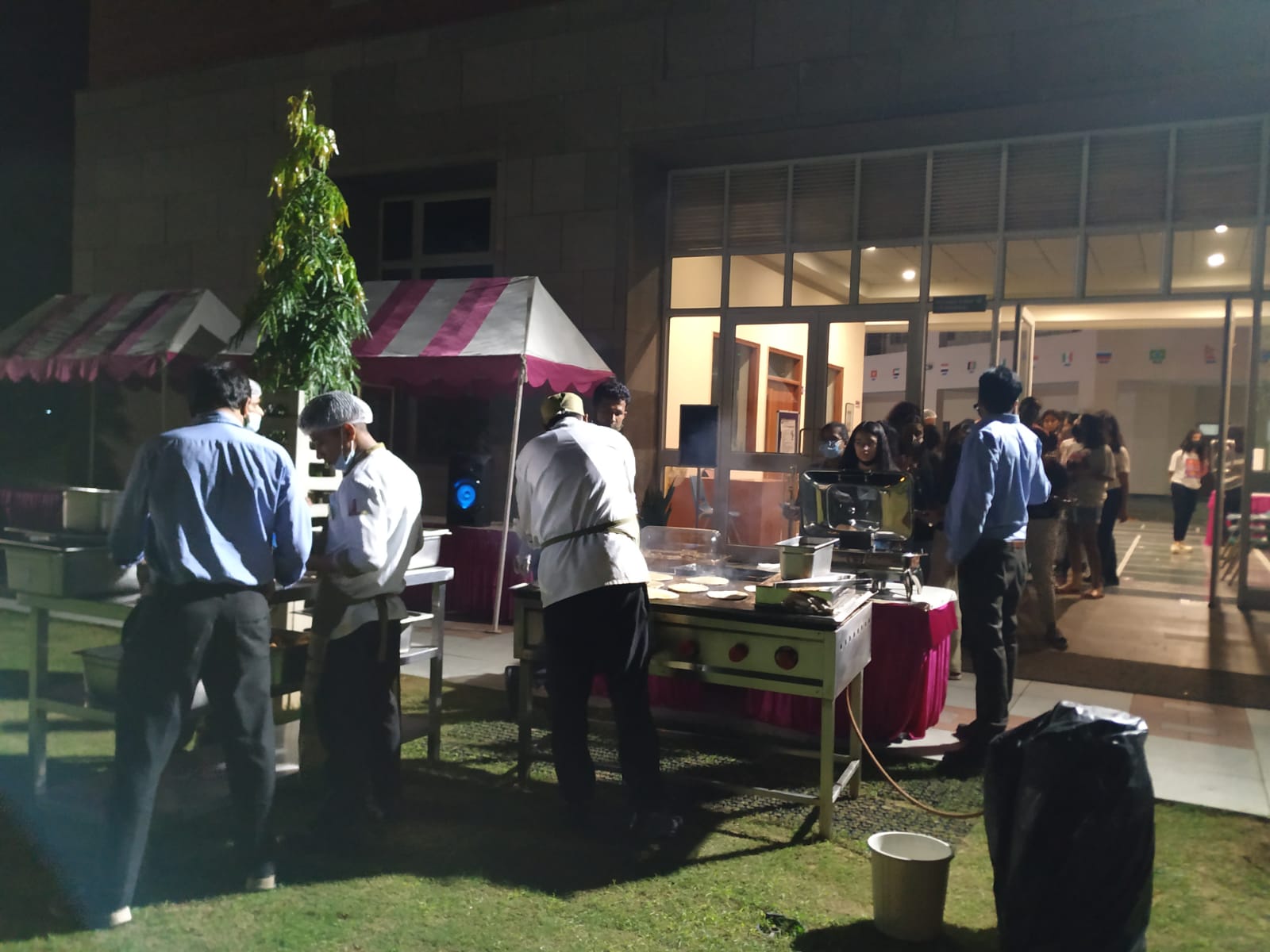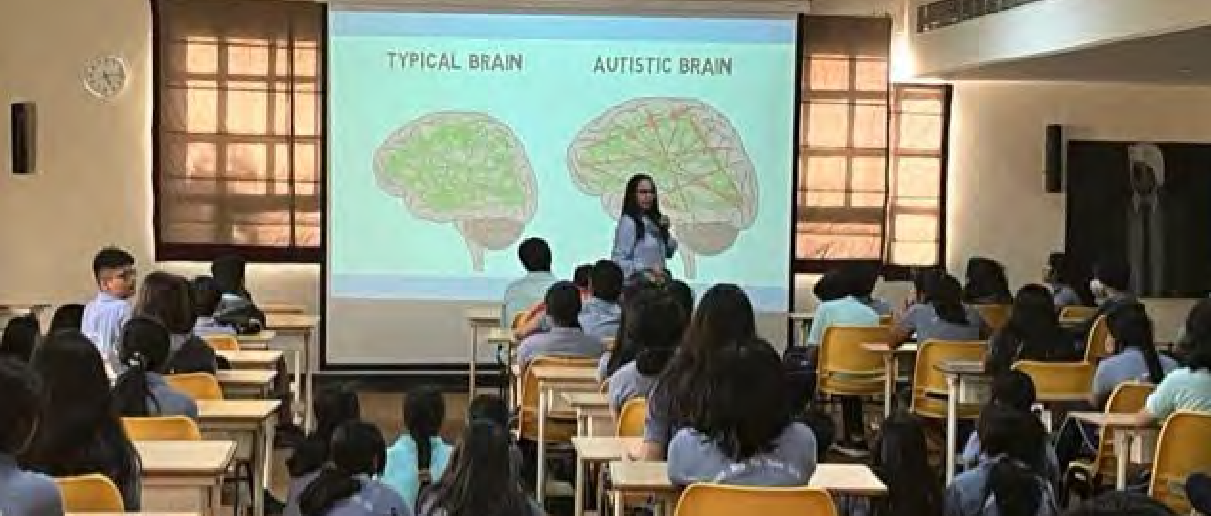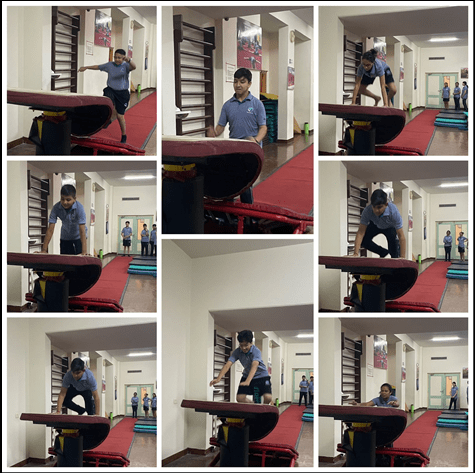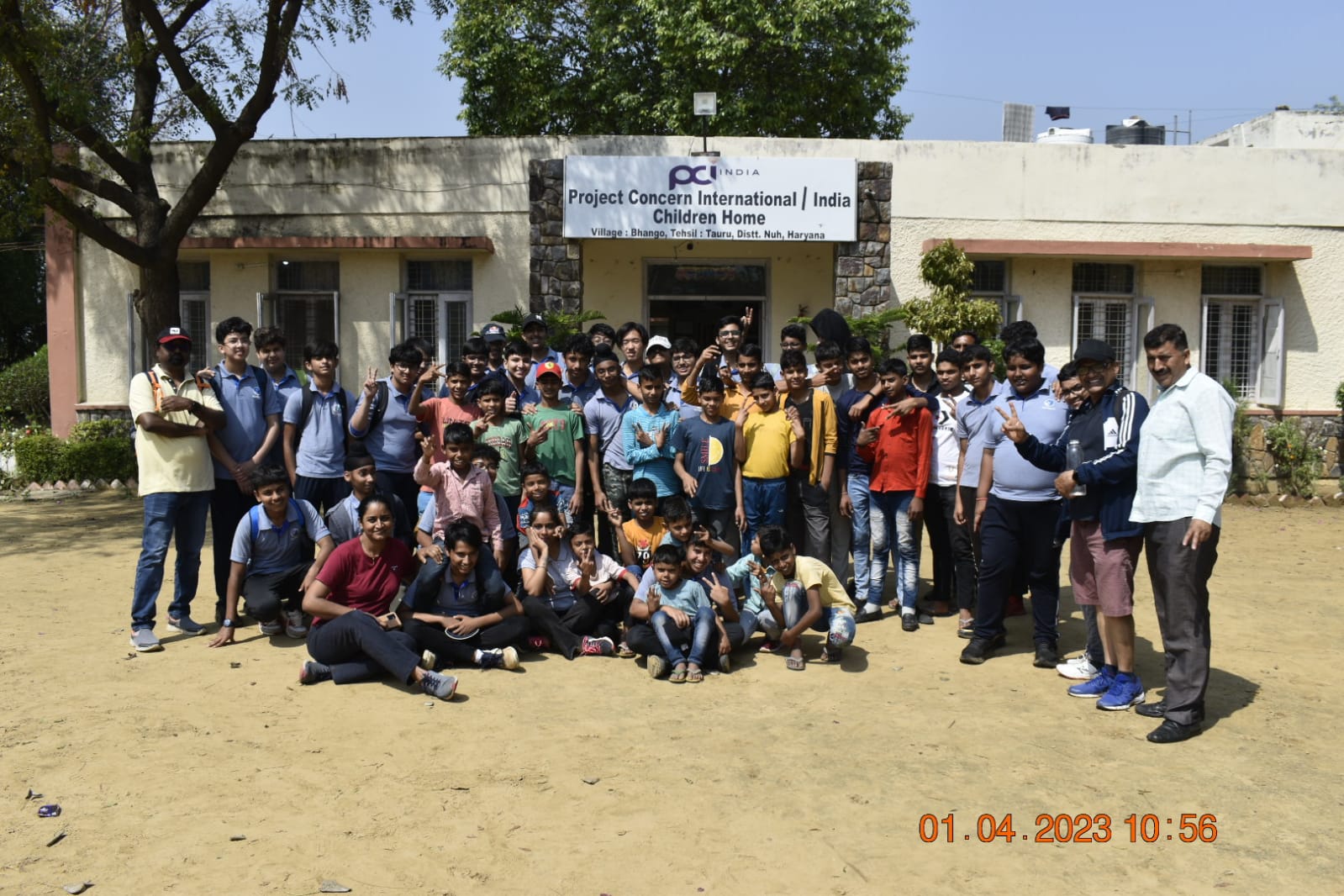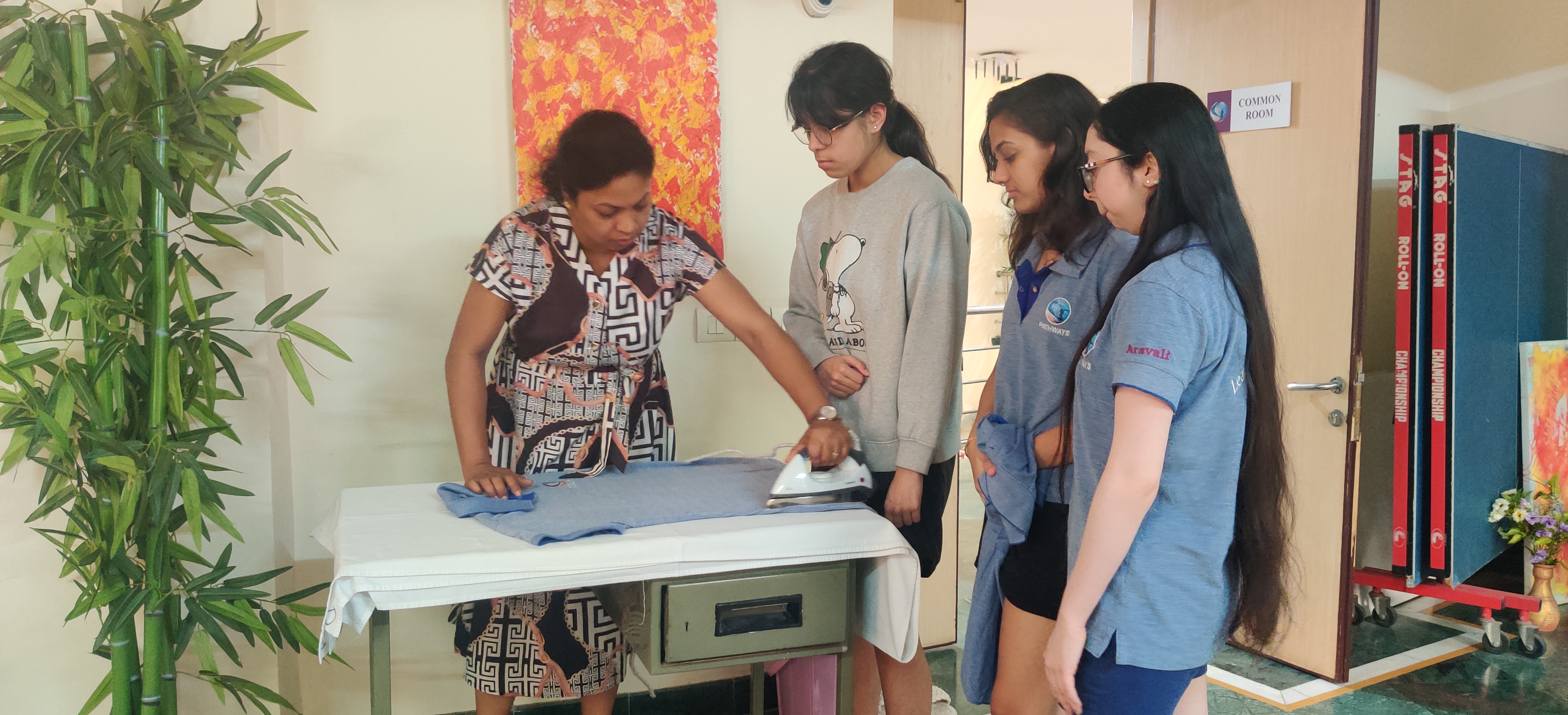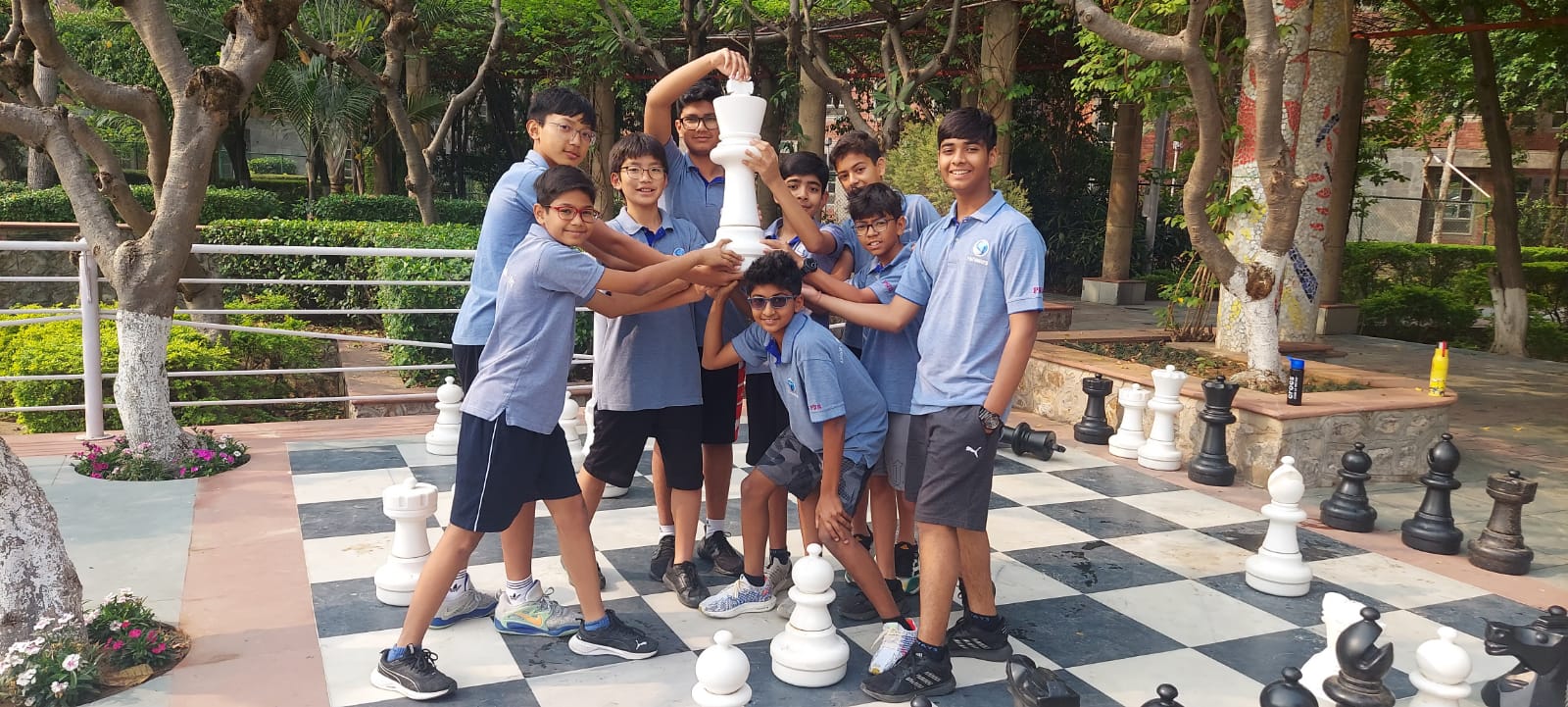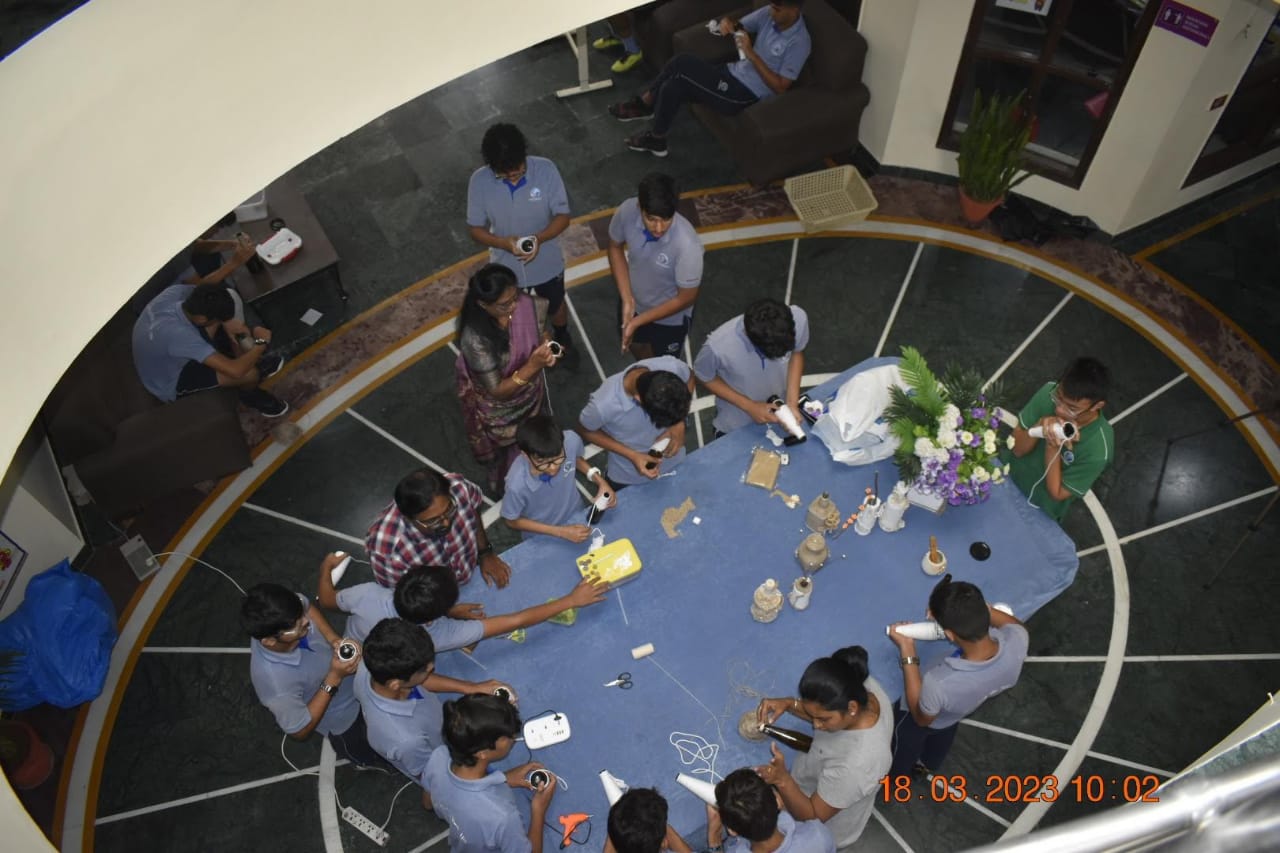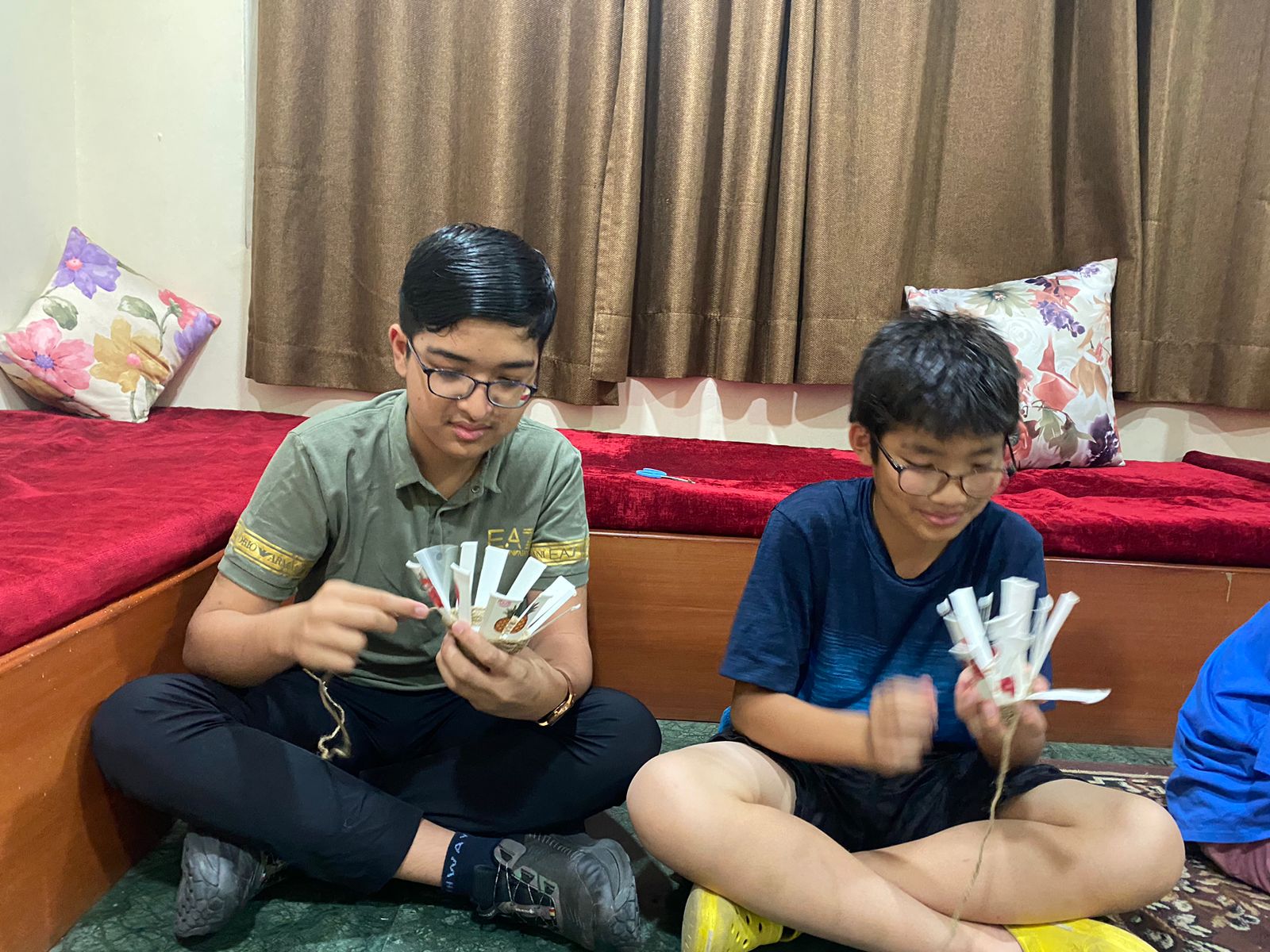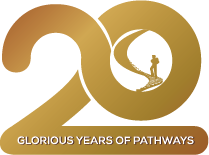Newsfeed
Back-
PWSMUN Conference September 2Pathways World School, Gurgaon
Pathways World School, Gurgaon hosted its 9th fully residential PWSMUN ( Model United Nations) from 29th August- 1st September 2019. The event has been one of PWS’ most prestigious. Every year, the school invites delegations from various schools to discuss current and burning issues. This year, 12 delegations and seven individual delegates came together to discuss the issue: ‘Solidarity at the core; tackling issues in the MENA region’.
Day 1
The first day of PWSMUN 2019 witnessed the commencement of invigorating debates and spontaneous interactions as the delegates plunged head-first into the conference with their best foot forward. This residential conference featured ten committees - handpicked by the secretariat for their dynamic potential for stimulating discussions as well as their potency to the world around us.
At 8 am, delegates donned on their best formal wear and assembled in the Amphitheatre to capture a timeless conference photograph as a memento for the upcoming incredible deliberations. The delegates then marched purposefully towards their committee rooms, eager to begin the proceedings and interact with their fellow delegates. After a brief introduction by each esteemed chair of the committee to make the delegations feel more at ease, the committee sessions officially commenced.
UNSC, renowned as the most competitive committee, started off at a relatively slow pace, initiating with a discussion about the proxy wars in the Middle East. The delegates eventually picked up their pace and endured intense pressure, as they discussed one potent motion after the next. By the end of the day, the delegates had already presented a working paper and were working on a second one.
The delegates of UNHRC spent the majority of Day 1 identifying, discussing and reflecting on potential causes behind human rights violation in Nigeria. After determining the key social and political factors, they regrouped during various unmoderated caucuses and created a working paper.
UNGA, which was mostly replete with beginners, started off at a slow pace. However, as the day progressed, the delegates were able to find their bearings and fruitful debate ensued. Slowly but steadily, delegates successfully asserted their stances on the situation of Western Sahara and analyzed key issues associated with it. All in all, they had a long way to go ahead.
HGA, also one of the most competitive committees, gathered to debate the displacement of Jews after WW2. The committee reviewed the problems faced by “stateless” Jews and further analyzed the impact they will have on the host countries. As each hour ticked by, delegates eventually gained confidence and steered the committee towards a promising
UNESCO, arguably the least advanced committee of the lot, spent a majority of the first half of the day reviewing rules of procedure and familiarizing itself with the agenda. Eventually, interesting discourse substantiated, where the delegate discussed the generation of international funds for the preservation of historical monuments. Things were looking up by the end of the day, and there was nowhere to go but up.
UNW had a successful start with many delegates making controversial statements, sparking heated debates. The committee was further lightened up by a press conference, which forced delegates to think on the spot. The committee culminated with drafting of a working paper as well as a draft resolution.
OPEC was a collection of a fairly confident group of delegates. By the middle of the first session, they’d began proposing possible solutions to the agenda. However, in the second session, the delegates took a step back and first analyzed causes, effects and potential outcomes pertinent to the agenda.
AU began at an impressive pace, with insightful debate right from the first session of the committee. The committee further contemplated the necessity of foreign intervention, when it comes to establishing stable government structures.
AL had one of the most potent agendas of the conference, discussing measures to tackle religious extremism in Middle East. The delegates did justice to this topic by conducting fruitful debate and even made a unanimous working paper by the end of the day.
WHO suffered the same fate as UNGA. However, some delegates quickly mustered their confidence and led the committee towards productive debate, inspiring the rather silent delegates to also speak up.
Finally, the IPC, the unconventional eleventh committee, was spread out across every other single committee. The reporters could be seen hard at work, always typing away at their computers whereas the editors would be seen waiting impatiently to edit some articles. The designers spent every free minute working on the 2 large boards, adding appropriate content and announcements to liven the mood.
All in all, Day 1 was a very successful day, with all the committees headed in the right direction of logical debate.
Day 2
After an exhausting night before, the delegates were back in the committees on Day 2, brimming with smiles and tired eyes. There was a general excitement in the air as the participants were eagerly looking forward to the Delegate Dance at the end of the day. Until then, they continued putting forward logical arguments and sparking passionate discourse.
On Day 2, UNSC saw a variety of differing perspectives, as the views of the delegates ranged across a broad spectrum, making the speeches and conversations all the more interesting. The committee ended with the delegates providing definitive closing statements and presenting their praise-worthy draft resolutions.
The delegates on UNHRC spent one half of the day drafting 3 different working papers and sharing viewpoints and the other half solving an imminent crisis, where they created, reviewed and critiqued clauses for new working paper pertaining to this. All in all, UNHRC delegates had a demanding day!
UNGA had an extremely productive day where economic, political and humanitarian impacts of the Western Saharan conflict were considered. As the day progressed, the committee deliberated effective solutions for the same - leading to the creation of 12 working papers!
HGA had a very productive day as the delegates perpetuated their energy from the day before. It featured insightful discourse where potential solutions and their respective implications were analyzed. It was also met with a crisis which was successfully averted thanks to the spontaneity of the committee.
UNESCO had various convoluted discussions on misleading countries for “greater good” and implications of foreign intervention. It was also introduced to a crisis which the delegates found appropriate solutions to just in time.
UNW discussed the four working papers created the day before. However, all four working papers were failed, which drove the delegates to work together and write a single working paper compiling the views of the two opposing blocs.
OPEC was characterized with polarizing debates as solutions were the main focus for the day. This meant the countries were switching between blocs constantly, trying to find their perfect match. However, a surprise crisis forced the delegates to redirect their attention towards correcting it.
AU majorly focused on discussing potent solutions to the agenda at hand, leading to an interactive and competitive environment. Eventually, the committee decided to create a unanimous draft resolution, helping each delegate sharpen their collaborative skills.
AL featured some passionate discourse about sovereignty and foreign policies as the delegates drafted their respective draft resolutions. A press conference was also conducted to heat things up, yet most delegates declined answering with a simple “no comments”.
Day 2 for WHO was less productive than the first one. Nonetheless, the press conference instigated delegates to speak up more and shares their views. Active participation eventually increased, and a working paper was presented at the end of the day.
IPC was doing the same thing it was doing the day before: reporting, editing and designing. The Press members were now in sync with the constant deadlines and were simultaneously creating content for the magazine, MUNDUST.
To summarize, Day 2 was an exciting day as the delegates were finally accustomed to the fast-paced nature of their committees and to the quality of debate expected. After a tiresome day, the delegates headed back to their residences to get ready for the much-awaited gala night.
Day 3
After shaking their stress away on the dance floor the night before, the delegates were refreshed and prepared to conclude their committees on a positive note and take back a suitcase full of memories. Abundant chatter and laughter could be heard from the cafeteria and the hallways as all the participants were now familiar with each other and friendships had blossomed.
UNSC’s last session was as productive as its first. The delegates presented their draft resolutions and constantly lobbied to create new allies and maintain the old ones. The delegates strongly defended their views while also compromising on some to reach a conclusive solution to the agenda prescribed.
UNHRC ended on a strong note. The draft resolution, created the day before, was evaluated and amended to make sure it addresses all potent concerns. It featured an astonishing 42 clauses, all in support of women and child rights in Nigeria.
The final day for UNGA commenced with the creation as well as discussion of a draft resolution. Although the two presented were ultimately failed, the delegates were now armed with lobbying and public speaking skills that will definitely help them in the future.
UNESCO reconvened on Day 3 to deliberate over the two draft resolutions presented by delegates. It inspired fruitful debate and intense lobbying to rally and gather more signatories for each draft resolution.
In UNW, during the last session, the two opposing blocks came together and created a single draft resolution which included clauses from both parties. This was followed by a Q&A session where the delegates were asked to justify each clause and amend as proposed by other members.
On the final day, OPEC’s primary aim was to finalize draft resolutions. There were 3 in question, each with distinct perspectives on addressing the agenda. The committee then proceeded to carefully critique and propose amendments for each draft resolution. The session ended with one draft resolution being passed.
During the concluding session of the committee, the African Union convened to discuss their final draft resolution on methods to implement reduction in political instability.
Keeping in mind the economic, socio-political aspects, the committee adjourned on a successful note as each delegate had not only contributed to the draft resolution but was content and willing to implement the regulations within the boundaries of their nations.
Since the draft resolution failed, AL spent its last session working on a communiqué where the delegates handpicked the least controversial solutions and collated them together. The committee ended with flying colours as it had successfully crafted effective solutions that would solve the agenda at hand.
WHO, on the other hand, has finalised two draft resolutions, out of which one was passed, deeming the committee successful. The resolutions emphasized on providing drinking water to the entire human population through various tactics.
Lastly, the IPC took a step back and diverted its attention to the conference magazine than live reporting. Each Press member could be seen heaving a sign of relief as they could finally relax without the pressure of deadlines.
After the committees were officially resolved, the delegates piled out with nervous looks on their faces as they awaited the award distribution!



